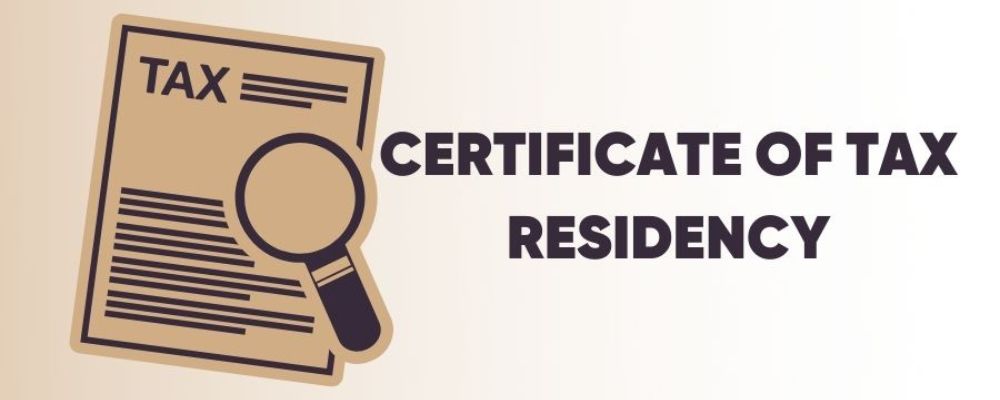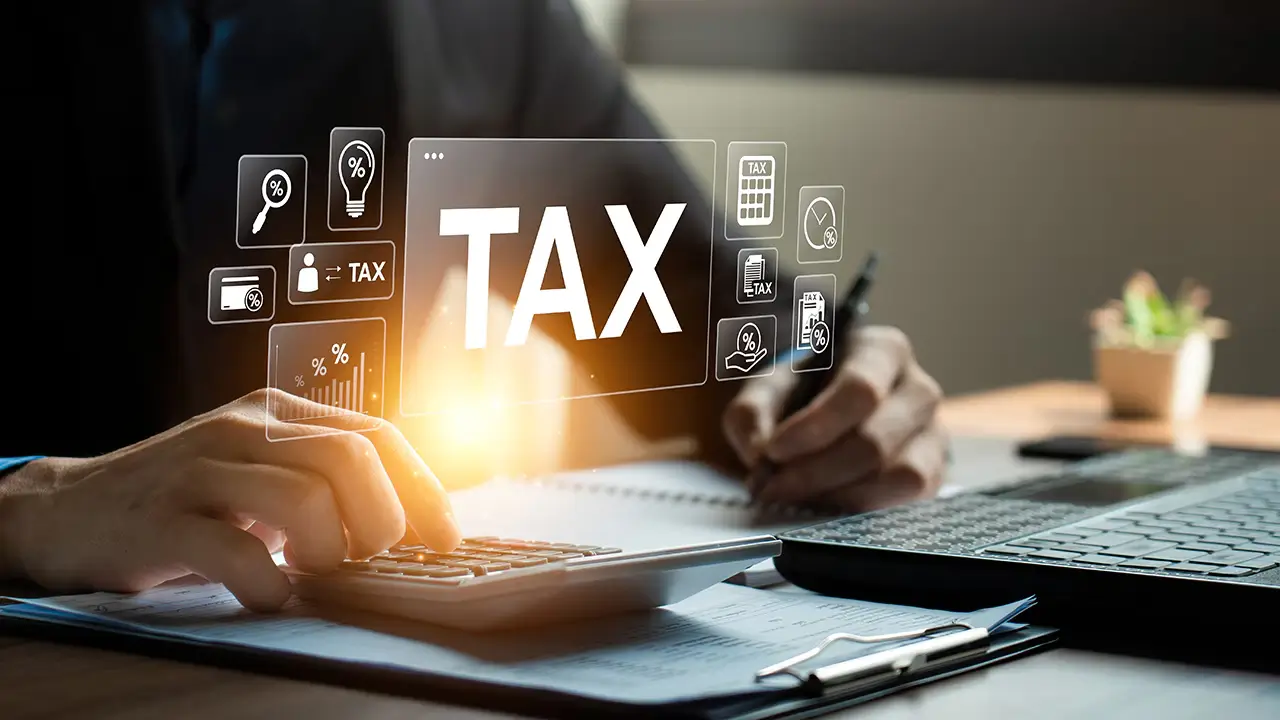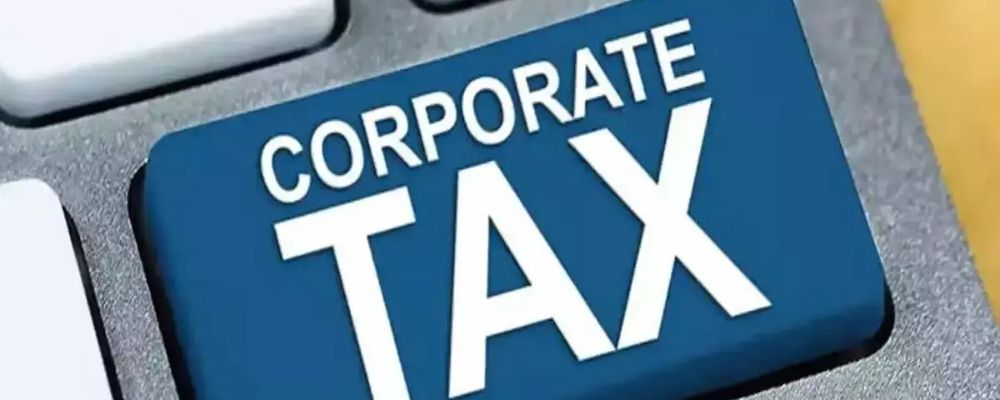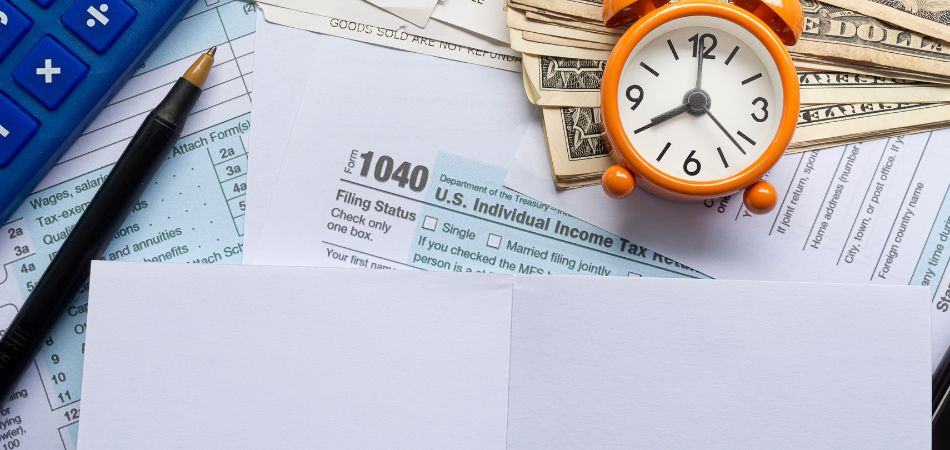
A Tax Residency Certificate (TRC) in the UAE has become an essential document for individuals and businesses seeking to optimize their international tax position. As global tax authorities increase information sharing and scrutiny of cross-border activities, having proper tax documentation is more important than ever. The UAE’s attractive tax environment makes its Tax Residency Certificate particularly valuable for avoiding double taxation and accessing tax treaty benefits.
But what exactly is a UAE Tax Residency Certificate? Simply put, it’s an official document issued by the Federal Tax Authority (FTA) that confirms your status as a tax resident of the United Arab Emirates. This certification is crucial for individuals and businesses conducting international activities, as it allows you to claim benefits under Double Taxation Avoidance Agreements (DTAAs) that the UAE has with numerous countries worldwide.
In this comprehensive guide, we’ll explore everything you need to know about obtaining and using a tax residency certificate UAE, from eligibility requirements and application procedures to costs and benefits. Whether you’re an expatriate living in the UAE, a business owner operating from the emirates, or simply exploring your tax optimization options, this article provides the essential information you need to navigate the TRC process successfully.
Double Taxation Treaty
Double taxation occurs when the same income is taxed by two different countries, creating an unfair burden on taxpayers. To address this issue, countries establish Double Taxation Treaties (DTTs), also known as Double Taxation Avoidance Agreements (DTAAs).
The UAE has actively expanded its network of tax treaties to support its position as a global business hub. These treaties are designed to:
- Prevent income from being taxed twice
- Provide clarity on which country has the right to tax specific types of income
- Reduce or eliminate withholding taxes on dividends, interest, and royalties
- Combat tax evasion through information exchange provisions
A tax residency certificate UAE serves as your proof of tax residence when claiming treaty benefits in another country. Without this official documentation, you may find yourself unable to access the tax relief you’re entitled to under these international agreements.
Double Taxation Avoidance Agreements (DTAA)
The UAE has signed DTAAs with over 130 countries, making its tax residency certificate one of the most valuable in the region. These agreements vary in their specific provisions, but typically cover:
| Income Type | Common DTAA Provisions |
|---|---|
| Business profits | Taxable only in the country where the business is resident unless it has a permanent establishment in the other country |
| Dividends | Reduced withholding tax rates (often between 0-15%) |
| Interest | Reduced or zero withholding tax rates |
| Royalties | Reduced withholding tax rates |
| Capital gains | Often exempt from tax in the source country |
| Employment income | Various provisions depending on duration of work in other country |
Some of the UAE’s notable DTAA partners include:
- United Kingdom
- China
- India
- Singapore
- Germany
- France
- Japan
- South Korea
- Russia
- Canada
- Switzerland
- Netherlands
When applying these treaties, a valid tax residency certificate UAE is typically required by foreign tax authorities as evidence of your UAE tax residence status.
Benefits of a Tax Residency Certificate
Obtaining a tax residency certificate UAE offers numerous advantages for both individuals and businesses. Understanding these benefits can help you decide if applying for a TRC is worthwhile for your specific situation.
For Individuals
- Prevention of Double Taxation: The primary benefit is avoiding being taxed on the same income by multiple countries.
- Reduced Withholding Taxes: Many countries impose withholding taxes on dividends, interest, or royalties paid to foreign residents. A UAE TRC can reduce or eliminate these taxes under applicable DTAAs.
- Simplified Tax Compliance: A TRC provides clear documentation of your tax status, simplifying your tax filing obligations in other countries.
- Asset Protection: Establishing tax residency in the UAE can be part of a legitimate wealth preservation strategy.
- Banking Benefits: Some international banks may offer preferential treatment or services to UAE tax residents.
For Businesses
- Corporate Tax Benefits: UAE companies can access reduced tax rates on foreign-source income under DTAAs.
- Enhanced Business Credibility: A tax residency certificate UAE enhances your company’s legitimacy when dealing with international partners and authorities.
- Access to Treaty Networks: Businesses can utilize the UAE’s extensive treaty network for international operations and investments.
- Competitive Advantage: The tax efficiencies gained through proper use of DTAAs can provide cost advantages over competitors.
- Strategic Planning: A TRC enables more effective tax planning for international expansion and investment.
- Protection Against Tax Challenges: Official documentation of tax residency helps defend against challenges from foreign tax authorities.
These benefits make a tax residency certificate UAE a valuable asset for international tax planning, but it’s important to ensure you genuinely meet the eligibility criteria before applying.
Required Documents and Forms
The documentation required for a tax residency certificate UAE varies depending on whether you’re applying as an individual (natural person) or as a business entity (legal person), and whether the certificate is for treaty purposes or domestic purposes.
TRC For Tax Treaty Purposes:
For Individuals:
- Completed Application Form: The official FTA application form must be filled out accurately.
- Identity Documentation:
- Valid UAE passport or Emirates ID
- Copy of valid residence visa (for expatriates)
- Proof of Residence in UAE:
- DEWA bills (electricity and water) in the applicant’s name
- Tenancy contract registered with relevant authorities (Ejari in Dubai)
- Title deed if you own property
- Financial Documentation:
- UAE bank statements for the last 6 months
- Evidence of income earned in or remitted to the UAE
- Additional Supporting Documents:
- Employment contract or trade license (if self-employed)
- UAE tax registration certificate (if applicable)
- Statement explaining the need for the TRC
For Companies:
- Completed Application Form: The official FTA form for legal entities.
- Corporate Documentation:
- Valid trade license
- Certificate of Incorporation or Registration
- Memorandum and Articles of Association
- Ownership Evidence:
- Share certificate
- Ownership structure diagram for complex structures
- Physical Presence Evidence:
- Office lease agreement registered with relevant authorities
- DEWA bills in company name
- Recent phone bills
- Financial Documentation:
- Bank statements from UAE banks for the past 6 months
- Most recent financial statements
- Evidence of business activities in the UAE
- Employee Documentation:
- List of employees with Emirates ID numbers
- WPS (Wage Protection System) records
- Employment contracts
- Additional Requirements:
- Board resolution authorizing the TRC application
- Evidence of decision-making taking place in the UAE
- Details of UAE-based directors
All documents must be in Arabic or English. If they’re in another language, they must be legally translated. Some documents may need to be notarized or attested, depending on specific requirements.
TRC for Domestic Purposes
A tax residency certificate UAE for domestic purposes is typically less complex than one for treaty purposes. This type of certificate is often used for local administrative requirements rather than international tax matters.
Required Documents for Domestic TRC:
For Individuals:
- Basic Application Form: A simplified version of the FTA application.
- Identity Documentation:
- Emirates ID
- Passport copy with valid residence visa
- Proof of Residence:
- Tenancy contract or title deed
- Recent utility bill
For Companies:
- Application Form: The standard FTA form for domestic purposes.
- Corporate Documentation:
- Valid trade license
- Registration documents
- Physical Presence Evidence:
- Office lease agreement
- Utility bill in company name
The domestic TRC is generally easier to obtain as it requires fewer supporting documents and undergoes less stringent scrutiny. However, it doesn’t carry the same weight for international tax purposes as a TRC issued for treaty purposes.
TRC Eligibility Criteria
Meeting the eligibility criteria is crucial before applying for a tax residency certificate UAE. The Federal Tax Authority applies specific standards to determine whether an individual or entity qualifies as a UAE tax resident.
For Legal Persons
Companies and other legal entities must satisfy these key requirements:
- Incorporation in the UAE: The entity must be legally established in the UAE, including mainland companies, free zone entities, or offshore companies (with some limitations).
- Substantial Economic Presence: The entity must demonstrate genuine economic activities in the UAE, not merely exist as a “shell company” or paper entity.
- Physical Presence: Maintenance of actual office space in the UAE (not just a virtual office).
- Local Decision-Making: Evidence that key management decisions are made within the UAE rather than abroad.
- Local Operations: Demonstration of day-to-day operations occurring within the UAE.
- Financial Activity: Active UAE bank accounts with regular transaction activity.
- Employment of Staff: Having employees physically working in the UAE.
- Compliance with Regulations: Being in good standing with all UAE regulatory requirements.
Free zone companies may face additional scrutiny to ensure they’re not being used primarily as tax avoidance vehicles without substantial local activity.
For Natural Persons
Individuals seeking a tax residency certificate UAE must generally meet these criteria:
- Physical Presence Test: Typically, residing in the UAE for at least 183 days in a 12-month period. However, this is not a strict rule and other factors are considered.
- Center of Vital Interests: Having your main economic and personal interests in the UAE.
- Permanent Home: Maintaining a permanent home available to you in the UAE.
- Valid Residency Status: Holding a valid UAE residence visa.
- Source of Income: Having income sourced from or remitted to the UAE (although this isn’t always required).
It’s important to note that simply having a residence visa does not automatically qualify you for UAE tax residency. The FTA looks at the totality of your circumstances to determine whether you genuinely have sufficient ties to the UAE to be considered a tax resident.
How to Apply for a UAE Tax Residency Certificate
The application process for a tax residency certificate UAE involves several steps that must be followed carefully to ensure success. Here’s a detailed walkthrough of the application procedure:
Step 1: Determine the Type of TRC You Need
Before beginning your application, clarify whether you need:
- A TRC for treaty purposes
- A TRC for domestic purposes
- An individual or company certificate
Step 2: Register on the Federal Tax Authority Portal
- Visit the official FTA website (tax.gov.ae)
- Create an account if you don’t already have one
- Complete your profile with accurate information
Step 3: Prepare Required Documentation
Gather all necessary documents as outlined in the “Required Documents” section above. Ensure that:
- All documents are clear and legible
- Translations are properly certified if original documents are not in Arabic or English
- Documentation is recent (typically within the last 3 months)
Step 4: Complete the Online Application
- Log in to your FTA account
- Navigate to the “Services” section
- Select “Tax Residency Certificate” application
- Choose the appropriate category (individual or company)
- Fill in all required information accurately
- Upload the required documents in the specified format (usually PDF)
Step 5: Pay the Application Fee
- Review the calculated fee based on your application type
- Complete the payment using the available payment methods (credit card, bank transfer, etc.)
- Save the payment confirmation for your records
Step 6: Track Your Application
- Note the application reference number provided
- Use the FTA portal’s tracking feature to monitor your application status
- Respond promptly to any requests for additional information or clarification
Step 7: Receive and Verify Your TRC
Once approved:
- Download the digital certificate from the portal (if available)
- Collect the physical certificate if required
- Verify all information on the certificate for accuracy
Common Pitfalls to Avoid
- Incomplete Documentation: One of the most common reasons for rejection is missing or incomplete supporting documents.
- Inconsistent Information: Ensure all information is consistent across different documents.
- Inadequate Proof of Residence: Insufficient evidence of genuine UAE residence is a frequent issue.
- Late Responses: Delays in responding to FTA queries can lead to application rejection.
- Applying Without Meeting Eligibility: Applying when you clearly don’t meet the residency criteria wastes time and money.
For complex situations, especially for businesses with international structures or high-net-worth individuals with global interests, engaging a tax advisor with specific expertise in UAE tax residency matters is highly recommended.
Tax Residency Certificate Cost in UAE
The cost of obtaining a tax residency certificate UAE varies depending on whether it’s for treaty or domestic purposes, and whether the applicant is an individual or a business entity. Here’s a breakdown of the current fee structure:
TRC Cost for Treaty Purpose
| Applicant Type | Application Fee (AED) | Certificate Issuance Fee (AED) | Total Cost (AED) |
|---|---|---|---|
| Individual | 500 | 1,000 | 1,500 |
| Company | 1,000 | 3,000 | 4,000 |
TRC Cost for Domestic Purpose
| Applicant Type | Application Fee (AED) | Certificate Issuance Fee (AED) | Total Cost (AED) |
|---|---|---|---|
| Individual | 300 | 500 | 800 |
| Company | 500 | 1,500 | 2,000 |
Additional costs to consider:
- Document Translation: If your documents need translation to Arabic or English, this will incur additional costs (typically AED 50-150 per page depending on complexity).
- Document Attestation: Some documents may require notarization or attestation (costs vary from AED 100-500 per document).
- Professional Assistance: If you engage a consultant or tax advisor to help with your application, fees typically range from AED 3,000-10,000 depending on complexity and the service provider.
- Urgent Processing: Some service providers offer expedited processing for an additional fee.
It’s worth noting that these fees are subject to change, and it’s always advisable to check the latest fee structure on the Federal Tax Authority website before proceeding with your application.
TRC Payment in UAE
Making payment for your tax residency certificate UAE application is a straightforward process with multiple options available. Here’s what you need to know:
Payment Methods Accepted
The Federal Tax Authority accepts the following payment methods:
- Credit/Debit Cards: Visa, MasterCard, and other major cards are accepted through the FTA’s secure online payment gateway.
- E-Dirham: The UAE government’s electronic payment system can be used for FTA fees.
- Bank Transfer: Direct transfers to the FTA’s designated bank account.
- Online Banking: Through participating UAE banks’ online portals.
Payment Process
- Online Portal Payment:
- After completing your application on the FTA portal
- Select your preferred payment method
- Follow the prompts to complete the transaction
- Save the electronic receipt generated
- Bank Transfer Payment:
- Obtain the FTA’s bank details from the portal
- Make the transfer through your bank
- Include your application reference number as the payment reference
- Upload proof of transfer to your application
Important Payment Considerations
- Currency: All payments must be made in UAE Dirhams (AED).
- Processing Time: Electronic payments are typically processed immediately, while bank transfers may take 1-3 business days to reflect.
- Application Processing: Your TRC application will only be processed after payment confirmation.
- Refunds: Fees are generally non-refundable, even if your application is rejected.
- Receipt: Always keep payment receipts for your records and potential future reference.
If you’re using a tax consultant or corporate service provider to assist with your application, they may handle the payment process on your behalf, often adding a service fee for this convenience.
TRC Validity in UAE
Understanding the validity period of your tax residency certificate UAE is essential for proper tax planning and compliance. Here’s what you need to know about TRC validity:
Standard Validity Period
- Individual TRC: Typically valid for one calendar year (January 1 to December 31).
- Company TRC: Also generally valid for one calendar year.
However, there are some important nuances:
- Application Timing Impact: If you apply mid-year, your TRC will typically still expire on December 31 of that year, meaning you get less than a full year of validity.
- Financial Year Considerations: For companies following a financial year different from the calendar year, the TRC validity may sometimes be aligned with their financial year, but this requires specific request and justification.
- Specific Purpose TRCs: Certificates issued for specific transactions or purposes may have shorter validity periods explicitly stated on the certificate.
Renewal Process
The FTA does not automatically renew tax residency certificates. You must apply for a new certificate each year, following the same process as the initial application. It’s recommended to begin the renewal process 1-2 months before your current certificate expires to ensure continuity of your tax residency status.
Maintaining Validity
To ensure your tax residency certificate UAE remains valid throughout its stated period, you must:
- Maintain your UAE residency status
- Continue meeting the eligibility criteria
- Notify the FTA of any significant changes in circumstances
- Comply with any conditions specified on the certificate
If your circumstances change significantly during the validity period (such as leaving the UAE permanently or closing down business operations), your TRC may no longer be valid even if it hasn’t yet expired.
Duration for getting Tax Residency Certificate in UAE
Processing times for obtaining a tax residency certificate UAE vary depending on several factors:
| Application Type | Standard Processing Time | Expedited Processing (where available) |
|---|---|---|
| Individual – Domestic | 7-14 business days | 3-5 business days |
| Individual – Treaty | 14-21 business days | 7-10 business days |
| Company – Domestic | 14-21 business days | 7-10 business days |
| Company – Treaty | 21-30 business days | 10-15 business days |
These timeframes assume that:
- Your application is complete and accurate
- All required documentation is provided
- You respond promptly to any queries or requests for additional information
Factors that may extend processing times include:
- High volume of applications during peak periods
- Complex ownership structures requiring additional verification
- Inconsistencies in submitted documentation
- First-time applications (renewals are typically processed faster)
For time-sensitive matters, it’s advisable to apply well in advance of when you’ll need to use the certificate.
Tax Residency Certificate Eligible Countries
The UAE has established one of the most extensive tax treaty networks in the Middle East and North Africa region, with agreements covering over 130 countries worldwide. These treaties determine the eligible countries where your tax residency certificate UAE can be used to claim benefits.
Key Treaty Partners
Here’s a breakdown of some major regions and countries with which the UAE has established DTAAs:
| Region | Countries with DTAAs |
|---|
| Europe | United Kingdom, France, Germany, Italy, Netherlands, Switzerland, Spain, Belgium, Austria, Ireland, Luxembourg, Malta, Cyprus, Most Eastern European countries |
| Asia | China, India, Pakistan, Singapore, Japan, South Korea, Malaysia, Thailand, Indonesia, Philippines, Vietnam, Hong Kong (Limited Agreement) |
| Middle East & Africa | Saudi Arabia, Egypt, Morocco, South Africa, Kenya, Mauritius, Tunisia, Jordan, Lebanon, Most GCC countries |
| Americas | Canada, Mexico, Panama, Venezuela, Argentina, Uruguay |
The United States is notably absent from this list, as no comprehensive double taxation treaty exists between the UAE and the US as of 2025, though limited agreements covering specific sectors do exist.
Treaty Benefits Variation
It’s important to understand that not all tax treaties provide the same benefits. The specific advantages available to UAE tax residents vary significantly by country. For example:
- Some treaties provide for zero withholding tax on dividends, while others may reduce the rate to 5%, 10%, or 15%.
- Certain treaties have more favorable provisions for specific types of income like royalties or technical service fees.
- Some agreements include beneficial provisions for capital gains taxation.
When planning international business or investment activities, it’s advisable to consult the specific provisions of the relevant treaty rather than assuming all UAE tax treaties offer identical benefits.
Non-Treaty Countries
Even in countries where no formal DTAA exists with the UAE, a tax residency certificate UAE may still be useful for:
- Providing official evidence of your tax status
- Supporting claims for foreign tax credits
- Demonstrating compliance with international tax reporting requirements
However, without a treaty, you won’t be entitled to reduced withholding tax rates or other specific treaty benefits.
Tax Residency Certificate (TRC) Consultants in UAE
Navigating the application process for a tax residency certificate UAE can be complex, especially for businesses with international operations or individuals with complicated financial affairs. Professional consultants can provide valuable assistance throughout this process.
When to Consider Using a TRC Consultant
You might benefit from professional assistance if:
- Your company has a complex ownership structure
- You have operations in multiple jurisdictions
- You’re unsure about your eligibility for UAE tax residency
- You’ve had previous TRC applications rejected
- You need expedited processing
- You lack familiarity with UAE tax requirements
- You need strategic advice on utilizing your TRC effectively
Services Offered by TRC Consultants
Most tax residency certificate consultants in the UAE offer the following services:
- Eligibility Assessment: Evaluating whether you meet the criteria for UAE tax residency.
- Documentation Preparation: Helping gather, prepare, and organize all required documents.
- Application Management: Handling the entire application process on your behalf.
- Communication with Authorities: Liaising with the FTA regarding any queries or additional requirements.
- Strategic Tax Planning: Advising on how to best utilize your TRC for international tax optimization.
- Renewal Services: Managing the annual renewal process.
- Post-Issuance Support: Providing guidance on using your TRC effectively with foreign tax authorities.
Choosing the Right Consultant
When selecting a consultant for your tax residency certificate UAE application, consider these factors:
- Expertise: Look for specialists with specific experience in UAE tax residency matters, not just general corporate service providers.
- Track Record: Ask about their success rate with TRC applications, particularly for cases similar to yours.
- Professional Qualifications: Verify that they employ qualified tax professionals or lawyers.
- Client References: Request testimonials or references from previous clients.
- Transparency: Ensure they provide clear information about their fees and process.
- Responsiveness: Test their communication efficiency before engaging their services.
Typical Consultant Fees
Fees for TRC consultant services vary widely based on:
| Service Level | Typical Fee Range (AED) |
|---|---|
| Basic Application Assistance | 3,000 – 5,000 |
| Comprehensive Service (Individual) | 5,000 – 8,000 |
| Comprehensive Service (Company) | 8,000 – 15,000 |
| Complex Cases | 15,000+ |
These fees are typically in addition to the official FTA application and issuance fees.
While hiring a consultant represents an additional cost, their expertise can significantly increase your chances of successful application and help you avoid costly mistakes or delays in the process.
Frequently Asked Questions
How much is the TRC fee in the UAE?
The TRC fee in the UAE varies based on the type of certificate and applicant:
For treaty purposes:
- Individuals: AED 1,500 (AED 500 application fee + AED 1,000 issuance fee)
- Companies: AED 4,000 (AED 1,000 application fee + AED 3,000 issuance fee)
For domestic purposes:
- Individuals: AED 800 (AED 300 application fee + AED 500 issuance fee)
- Companies: AED 2,000 (AED 500 application fee + AED 1,500 issuance fee)
Additional costs may include document translation, attestation, and consultant fees if professional assistance is used. All fees are non-refundable, even if your application is rejected.
What is the 90 day rule for tax residency in the UAE?
The "90 day rule" isn't an official UAE tax residency criterion but refers to a common misunderstanding. While many countries use a 183-day physical presence test (staying more than half the year), the UAE does not have a strict day-counting approach.
The FTA typically looks at several factors when determining tax residency, including:
- Physical presence in the UAE (with no specific day threshold explicitly stated)
- Your permanent home being in the UAE
- Your center of vital interests (economic and personal) being in the UAE
- Having a valid UAE residence visa
For individuals seeking a tax residency certificate UAE, being physically present for a substantial portion of the year is generally expected, but this is evaluated alongside other factors rather than as a standalone criterion.
What is a tax certificate in the UAE?
A tax certificate in the UAE can refer to several different documents, including:
- Tax Residency Certificate (TRC): The main focus of this article, confirming your status as a UAE tax resident for treaty or domestic purposes.
- VAT Registration Certificate: Issued to businesses registered for Value Added Tax in the UAE.
- Tax Clearance Certificate: Sometimes required to confirm you have no outstanding tax liabilities.
- Tax Compliance Certificate: Confirming your compliance with UAE tax obligations.
The tax residency certificate UAE is specifically used to confirm your status as a UAE tax resident, primarily for accessing benefits under Double Taxation Avoidance Agreements with other countries.
How long does it take to get TRC in UAE?
The processing time for a tax residency certificate UAE varies based on several factors:
- Individual applications for domestic purposes: 7-14 business days
- Individual applications for treaty purposes: 14-21 business days
- Company applications for domestic purposes: 14-21 business days
- Company applications for treaty purposes: 21-30 business days
These timeframes assume complete applications with all required documentation. Factors that may extend processing time include:
- Incomplete documentation
- Requests for additional information
- Peak application periods
- Complex business structures requiring additional verification
- First-time applications (renewals are typically faster)
For urgent needs, some consultants offer expedited services, though this may involve additional fees and still depends on the FTA's processing capabilities.
What is proof of residence in UAE?
Acceptable proof of residence for a tax residency certificate UAE typically includes:
For Individuals:
- Tenancy contract (Ejari in Dubai, Tawtheeq in Abu Dhabi)
- Title deed if you own property
- DEWA (electricity and water) bills in your name
- Telecommunication bills (du, Etisalat) in your name
- UAE bank statements showing local transactions
- Emirates ID (though not sufficient on its own)
For Companies:
- Office lease agreement registered with relevant authorities
- DEWA bills in company name
- Trade license showing physical address
- Recent phone or internet bills in company name
The strongest applications include multiple forms of proof of residence. Digital or online bills are generally acceptable if they clearly show your name and UAE address. For treaty purpose TRCs, more comprehensive evidence of genuine residence is typically required compared to domestic purpose certificates.
Conclusion
Obtaining a tax residency certificate UAE represents an important step for both individuals and businesses seeking to optimize their international tax position. As we’ve explored throughout this comprehensive guide, a TRC provides official confirmation of your UAE tax resident status, unlocking numerous benefits under the country’s extensive network of Double Taxation Avoidance Agreements.
Key Points to Remember
- Eligibility Matters: Meeting the genuine substance requirements for UAE tax residency is essential. Simply having a residence visa or company registration isn’t sufficient without demonstrating actual ties to the UAE.
- Purpose-Specific Applications: Determine whether you need a TRC for treaty purposes or domestic purposes, as the requirements and costs differ significantly.
- Documentation is Critical: The success of your application largely depends on providing complete, accurate, and well-organized supporting documents that clearly establish your UAE residence.
- Plan for Processing Time: Allow sufficient time for your application to be processed, especially for company applications or during peak periods.
- Expert Guidance: For complex situations, professional assistance from qualified tax consultants can significantly improve your chances of success.
- Annual Renewal: Remember that your tax residency certificate UAE typically requires annual renewal, so plan accordingly to maintain continuous tax residency status.
Future Outlook
As global tax transparency initiatives continue to evolve and countries implement the OECD’s Base Erosion and Profit Shifting (BEPS) framework, the standards for establishing tax residency are likely to become more stringent. The UAE has demonstrated its commitment to international tax standards while maintaining its attractiveness as a low-tax jurisdiction.
For UAE residents and businesses, staying informed about these developments and ensuring you meet the substantive requirements for tax residency will be increasingly important. The tax residency certificate UAE will continue to serve as a valuable tool for legitimate tax planning, provided it reflects genuine economic substance and presence in the emirates.
By following the guidance provided in this article and seeking professional advice where needed, you can navigate the TRC application process successfully and leverage the benefits of UAE tax residency within the framework of international tax compliance.






